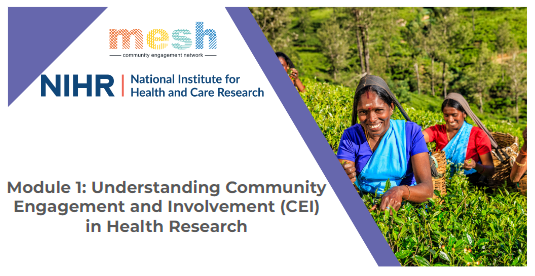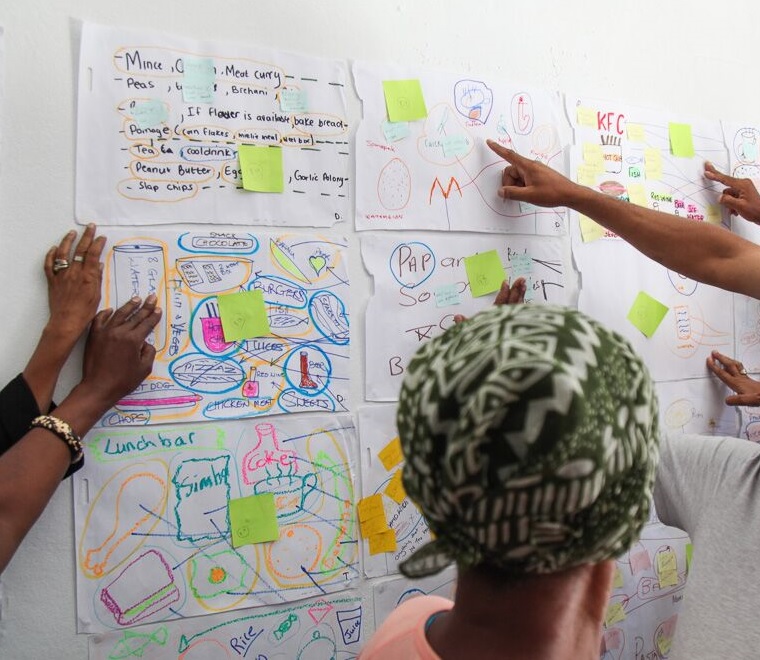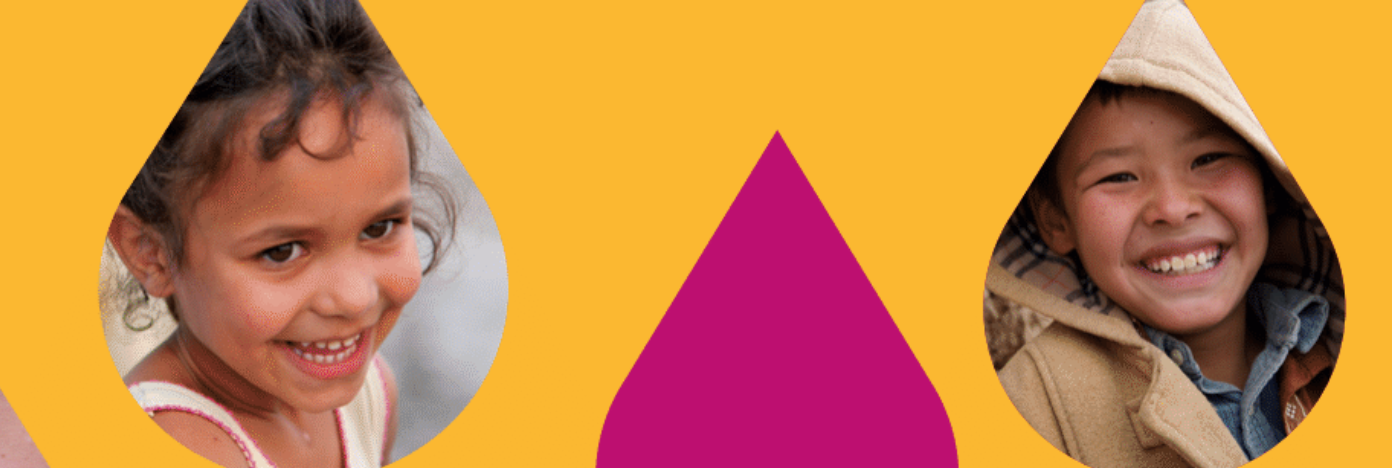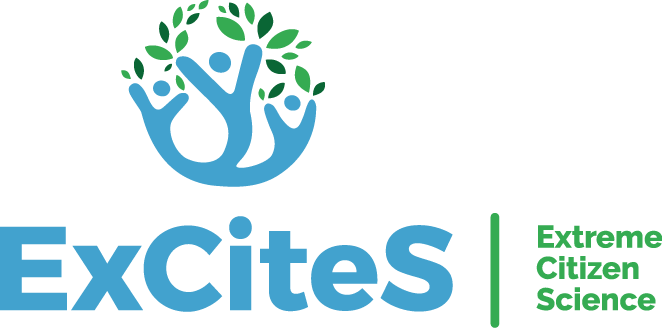Information on training and learning opportunities in community engagement and related fields
Please check individual providers for up to date information. Visit The Global Health Training Centre for global health research-related online training and professional development.
|
List of Academic Courses or Professional Development (by world region)Here you will find a list of higher education courses such as undergraduate and masters' degrees as well as professional development and training that is normally held in-person |
Online Courses
Click on one of the courses below to find out more information:
- An Introduction and Practical Guide to Community Engagement and Involvement in Global Health Research
- The Practice and Ethics of Participatory Visual Methods for Community Engagement
- Monitoring and Evaluation for Results Training
- Scientific Community Engagement Fundamentals
- NCCPE Excellence in Engagement Courses
- Media Skills for Scientists
- AVAC 'engage' online courses on Good Participatory Practice
- Research Ethics - Engaging with Communities
- Essential Elements of Ethics: Community
- Science Journalism
- Digital Storytelling
- Preparedness and Response for Polio and other Disease Outbreaks
- Improve your Intercultural Competence
- Social Media Analytics: Using Data to Understand Public Conversations
- Medicine and the Arts: Humanising Healthcare
- Working with Translation: Theory and Practice
- Global Health and Disability
- Science communiation in theory and practice (summer school)
- Science Communication & Public Engagement (Online Postgraduate Study)
- Research Engagement, Participation and Impact
- Citizen Science and Scientific Crowdsourcing: An Introduction
An Introduction and Practical Guide to Community Engagement and Involvement in Global Health ResearchScope: 7-module online course | Cost: Free The aim of this course is to develop learners' understanding and knowledge of CEI, supporting their ability to plan and design ethical and impactful CEI in health research. For the purposes of this course, we use the term CEI to mean:
"An active involvement of the community throughout the research process, using participatory approaches and working in partnership with all key stakeholders. CEI includes a range of activities which involve interactions between researchers, community members and stakeholders, aimed at improving the relevance, value and conduct of health research." In progressing through the modules, learners will gain a better understanding and appreciation of the terms used for CEI, the broad range of CEI aims and approaches, and the overall value of CEI. CEI is an essential and rewarding component of research, and, as the course authors, we hope that you enjoy learning about it through this course. |
Back to list of Online Courses
Mesh eLearning Course: The Practice and Ethics of Participatory Visual Methods for Community Engagement in Public Health and Health Science
Duration: 6-8 hours | Cost: Free This course provides guidelines on the practice and ethics of participatory visual methods (PVM) with emphasis on their use in low and middle-income countries for community and public engagement in health and health science. It was produced as part of the Mesh Community Engagement Network learning and training resources. The course has been developed for use by engagement practitioners who are relatively new to the field of PVM and want to learn more about what they are and how to work with them. It is most fitting for those who already have some experience in facilitating participatory processes or in using qualitative research methods. The course also aims to support health science researchers who wish to include visual methods when engaging local communities and wider publics in their work. The course can start and end whenever you choose. To take the course visit The Global Health Training Centre. |
Back to list of Online Courses
Monitoring and Evaluation for Results TrainingDuration: 8 weeks | Cost: £1250 (excl. VAT) | Lanuage: English This Monitoring and Evaluation online course, from IMA International, is a 8-week programme specifically designed for development workers in NGOs, government, UN agencies and private sector organisations. The course addresses M&E for the entire results chain, including the all-important outcomes, and enables you to understand the importance of using information and knowledge for evidence-based decision making. You work from the comfort of your own home or office. You complete the course over 8 weeks with facilitated, scheduled live meetings. The 8 week programme will take between 30-40 hours to complete including: contact hours; self-study and reflection; peer and paired work; pre and post course learning.
You are awarded an M&E certificate after completing the course and fulfilling all course criteria. |
Back to list of Online Courses
Scientific Community Engagement FundamentalsDuration: 6 weeks | Cost: $750 USD | Lanuage: English Scientific Community Engagement Fundamentals is run by the Center for Scientific Collaboration and Community Engagement and is designed to offer new or existing community managers core frameworks and vocabulary to describe their community and their role within it. While the content is designed for any level of learner, it should not be thought of as a “beginner” course. Rather, it is intended to create common ground so that scientific community managers can converse across disciplines, more efficiently learn from one another, and build successful engagement strategies that are grounded in research. Each week, participants will meet virtually (using Zoom) for a 90 minute lesson and a 60 minute Co-Lab. While lessons will involve structured presentations and activities, Co-Lab time is for discussion, reporting out, and seeking feedback from instructors and fellow learners. Each week will also include approximately 90 minutes of homework, for a total time commitment of 4 hours per week Successful completion of the course requires attendance at 11 out of 12 of the online sessions, at a minimum, as well as completion of homework assignments. Find out more and register on the CSCCE website |
Back to list of Online Courses
NCCPE Excellence in Engagement CoursesThe National Co-ordinating Centre for Public Engagement (NCCPE) offers a range of training opportunities to support the development of high quality engagement work. They offer six 'off-the-shelf' training courses:
Visit the NCCPE website for more information, course dates and registration information. Please note, these courses have been designed and developed for the UK engagement context. If your institution is based outside the UK, please get in touch with nccpe.enquiries@uwe.ac.uk. |
Back to list of Online Courses
Media Skills for Scientists from SciDev.NetDuration: Flexible | Cost: Free SciDev.Net, the world’s leading source of reliable and authoritative news, views and analysis in science for global development have a Media Skills for Scientists online course. The course aims to equipt scientists with the knowledge and skills to become confident communicators with the media and enhance their professional reputation, while improving public engagement with their research. The course can start and end whenever you choose. For more information contact: training@scidev.net |
Back to list of Online Courses
AVAC 'engage' online courses on Good Participatory Practice GPP
Duration: variable | Cost: Free The AVAC (Global Advocacy for HIV Prevention) have several online courses on offer in relation to Good Participatory with interactive online content, case studies, work assignments and online discussions. Courses include: Strengthening Stakeholder Engagement Through Ethics Review – HIV Prevention Trials: The course on Strengthening Engagement Through Ethics Review is a “must do” for any REC members, … investigators … as well as for any other stakeholders with an interest in HIV prevention research… The course addresses why it is important to engage, who needs to be engaged, how can they be engaged, how can researchers plan for engaging stakeholders, and ultimately how can RECs assist in strengthening stakeholder engagement. Unlocking the Potential of Good Participatory Practices (GPP) in HIV Implementation Science: This online, self-paced course targets research implementers, advocates and professionals in the HIV prevention field and aims to enhance their comprehension of the fundamental rationale, goals and approaches behind stakeholder engagement and HIV implementation science, in the context of new product introduction. Project Engage Introduction to Good Participatory Practice. GPP Compliance Course: This 2-hour self-paced course was designed for stakeholders designing, financing and managing clinical trials but is open for anyone! Heartbeat of the Planet: Reporting on how climate change affects our health: This free course will help you understand the basic science behind the causes of climate change, the impact it has on public health and how you can tell the story effectively and accurately for your audiences. |
Back to list of Online Courses
Research Ethics Online Training - Engaging with CommunitiesDuration: Flexible | Cost: Free The Global Health Training Centre offers free research ethics online training adapted from an e-Learning course and resource package designed and produced by the World Health Organization (WHO) for use by internal staff. |
Back to list of Online Courses
Essential Elements of Ethics - Essential Element 7: CommunityDuration: Flexible | Cost: Free The Global Health Training Centre offers a free and open access e-Learning resource which has been adapted from the Multi-Regional Clinical Trials Center at Harvard University (Harvard MRCT) Ethics Tool Kit. Access the full training on the Training Centre, which includes a module on community engagement which may be of interest to Mesh users. |
Back to list of Online Courses
World Federation of Science Journalists: Free Science Journalism CourseDuration: Flexible (10 lessons) | Cost: Free Online course in science journalism (Available in 10 languages: including Vietnamese, French, Spanish and Portuguese) The course material is comprised of ten lessons from science journalists across the world. Each lesson consists of an e-lecture with examples, self-teaching questions, and assignments. These lesson cover: Finding and judging a science story, interviewing, writing, social media and filming. |
Back to list of Online Courses
Free Digital Storytelling WebinarsDuration: 1 hour (regularly repeated) | Cost: Free The 'Story Centre' offers a number of webinars, including: Introduction to digital story telling: Finding a story to share is a journey, often not an easy one. Yet sharing experiences about our lives is immensely rewarding and may even reveal unexpected outcomes. This free webinar is the first step of your unique digital storytelling journey, and a gateway to further explorations of image, sound, and digital media. Introduction to public health digital storytelling: Digital Storytelling for Global Health and Rights: Storytelling can be a valuable tool for public health researchers and practitioners. Our methods support local community members in sharing first-person narratives and turning them into videos that can be used for training, community mobilization, advocacy, and more. These free, one-hour webinars offer participants a broad introduction to our work in public health, and an understanding of how our public health partnerships work. |
Back to list of Online Courses
Preparedness and Response for Polio and Other Disease Outbreaks: Training PackageDuration: Flexible | Cost: Free |
Back to list of Online Courses
Improve Your Intercultural Competence Course
Duration: 4 weeks (3 hours/wk) | Cost: Free (Upgrade £52) This course is relevant for those looking to improve their competence in working within intercultural settings, which is often the case for those working within Global Health. Learners will be introduced to the basics of working across cultures and develop communication skills to help with this. The course covers the following topics:
|
Back to list of Online Courses
Social Media Analytics: Using Data to Understand Public ConversationsDuration: 3 weeks (3 hours/wk) | Cost: Free (Upgrade £62)
This course is for anyone interested in social media analytics. Users get to learn how to use powerful digital tools such as Tableau to analyse data as well as identifying different social trends. By the end of the course learners will be able to access social media data ethically, apply digital methodologies to recognize social patterns and trends and finally create visual presentations that showcase your findings. Learners will be guided by experts in the field and tools and guides are readily available once you enrol. This course will allow learners without coding skills to access analyse and visualise their own social media. |
Back to list of Online Courses
Medicine and the Arts: Humanising Healthcare
This online course will explore the intersection of medicine, medical anthropology and the creative arts. Through each of its six weeks, we’ll visit a new aspect of human life and consider it from the perspectives of people working in health sciences, social sciences and the arts. The course will introduce learners to the emerging field of medical humanities and the concept of whole person care, via these six themes:
|
Back to list of Online Courses
Working with Translation: Theory and Practice (Future Learn)Duration 4 weeks (4 hours/week) | Free course (£52 upgrade) This online course explores what it means to communicate in multiple languages in a variety of contexts. It covers definitions, mechanisms, and varieties of translation; the role of translators; professional ethics and codes of conduct; writing successful translation commissions and more. It draws of the research of specialists at Cardiff University and the University of Namibia. |
Back to list of Online Courses
Global Health and Disability (Future Learn)Duration 3 weeks (4 hours/week) | Free course (£42 upgrade) This online course aims to raise awareness about the importance of health and well-being of people with disabilities in the context of the global development agenda: leaving no one behind. Amongst multiple topics, it explores community based inclusive development for improving access to health and rehabilitation for people with disabilities. This course has a particular focus on low and middle income countries, and is designed for anyone with a professional or personal interest in disability as it relates to health, rehabilitation, international development and humanitarian assistance. |
Back to list of Online Courses
POSTGRADUATE STUDY (Online Distance Learning): Science Communications & Public EngagementDuration 1 to 3 years (part-time) | Cost £5,735/year (scholarships/funding available) The University of Edinburgh is offering the opportunity to gain a formal qualification (either postgraduate certificate, diploma, or masters degree) in science communication through an online, distance learning format. On this course, you will experience a variety of science communication and public engagement practices and issues. In the process, you will develop your critical thinking skills and ability to reflect on your learning. This course is suitable for those with a 2:1 honours degree (UK) or international equivalent. Visit the course website to find out more about the programme structure, enrolment dates, content, entry requirement, fees and scholarships. |
Back to list of Online Courses
Research Engagement, Participation and ImpactDuration: 11 weeks (8 hours/wk) | Cost: £665 This online course will give you the knowledge and skills to ensure research addresses the concerns of the public, practitioners and policymakers. You'll learn why and how to involve the public and other stakeholders in research creation, oversight, design, conduct and interpretation. You'll also reflect on research from a variety of perspectives and explore strategies to help researchers and stakeholders work effectively together. You'll learn from a course team with a track record of high-quality research examining impact and engagement. This course is run by the Evidence for Policy and Practice Information and Co-ordinating Centre (EPPI-Centre), part of UCL Institute of Education (IOE). The EPPI-Centre is recognised worldwide for its work developing methods for diverse kinds of systematic review and for the production of policy-relevant research. The course runs over 11 weeks. |
Back to list of Online Courses
Citizen Science and Scientific Crowdsourcing: An IntroductionDuration: 30 hours | Cost: FREE
University College London (UCL) and Extreme Citizen Science (ExCiteS) are running this introductory course to the theory and practice of citizen science and crowdsourcing. The course will explore the history, theoretical foundations, and practical aspects of designing and running citizen science projects. Specific topics include: how to make projects participant centred, ethics and legal issues, and evaluation and policy. This course is suitable for those involved in citizen science or public engagement with science, and scientists who are considering developing a citizen science project. There are no pre-requisites for this course - you don't need any prior knowledge of what citizen science is, or what happens in crowdsourcing. |
Back to list of Online Courses
List of Academic Courses or Professional Development (by world region)
Here you will find a list of higher education courses such as undergraduate and masters' degrees as well as professional development and training that is normally held in-person. Please check individual providers for up to date information
Click on the regions below:
Africa
Stellenbosch University MPhil Science and Technology Studies - with specialism in Science and Public EngagementWhere: Stellenbosch University, Western Cape Province of South Africa This course focuses on the study of science and technology. It comprises three options: General; Research Management and Evaluation; and Science and Public Engagement. The ‘Science and Public Engagement’ option focuses on the relationship between science and society from a ‘sociology of science’ perspective. Modules for this option include: Research Uptake and Social Impact, Science and its Publics, and Scientific Communication. Deadlines for applications are 30 September (South African students) or 31 August (International students) of the preceding year. Visit the course page to find out more about the programme structure, admissions and fees. |
MSocSC (Masters of Social Science Degree) in Health Research Ethics, at the South African Research Ethics Training Initiative (SARETI)Where: SARETI, University of Kwazulu-Natal, South Africa This MSocSC aims to provide trainees with a solid theoretical foundation and practical competence to conduct and lead ethical reviews of health research, and to train others to complete ethical reviews. Modules include: Introduction to Bioethics, Critical Issues in Informed Consent, Research Ethics: African and Indigenous Perspectives, Ethical Issues in Community-Based Research etc. Contact: pettitc@ukzn.ac.za Visit the website to find out more, access scholarships and financial assistance information and download the application form. |
Training of Facilitators (TOF)Where: AMREF Health Africa, Nairobi, Kenya This course applies a hands-on approach to participatory teaching methods and skills, and ensures that trainees acquire knowledge and skills to deliver training in a stimulating atmosphere. |
Facilitator Train-the-Trainer - Short CourseWhere: Pretoria, South Africa This course aims to enable clinical and management subject experts to transfer knowledge and skills through effective and efficient training practices to adult learners within the higher education framework. The study material will over: adult learning principles, modes of instruction, presentation skills, interactive facilitation skills etc. Students will be awarded with a certificate on completion. |
Back to Academic Courses by region
Asia
Community Forums ManagementWhere: Dubai, United Arab Emirates (OR in-house training at your organisation) This course addresses the ‘research-based’ needs of development workers and managers. This course will cover: types of community forums and their characteristics, challenges for community forums to function, and the sustainability and maintenance of community forum operations. |
Back to Academic Courses by region
Australasia
Masters in Science Communication, Australian National UniversityWhere: Australian National University, Canberra, Australia This course combines theoretical and practical aspects of science communication, and delves into topics that include: science in the media, science and public policy, ethics of science, and cross-cultural science communication. Students will have the skills and knowledge to: identify, apply, and evaluate science communication strategies for diverse audiences using a range of means, media, and technologies; develop appropriate qualitative and quantitative research tools and strategies to investigate, justify, and interpret science communication theories, methods, and conclusions. |
Back to Academic Courses by region
South America
University of FioCruz Masters Programme: Science, Technology and Health CommunicationWhere: University of FioCruz, Rio De Janeiro This course is directed at those interested in producing new knowledge, exploring novel approaches and targeting new groups in dialogues around fields of health, science, and technology in society whether nationally or internationally. Lines of research might include: education, communication and medicine, science, culture and society, or understanding the public and audiences. The training is tailored towards communicating science and educating the public, rather than a two-way engagement approaches. |
Back to Academic Courses by region
Europe
The Institute of Development Studies - Empowering community engagement and involvement in global health researchWhere: The Institute of Development Studies (IDS), Brighton, UK. The course covers core principles and innovative methodologies, developing creative approaches to common challenges in practice. Apply to the course by completing the online application form before 12 August 2024. |
UWE Science Communication MasterclassWhere: We The Curious, Bristol, UK The masterclass will cover historical and social contexts of science communication, scientific literacy and public understanding, publics and engagement, and methods of engaging the public. Further interactive sessions will explore: adapting to audiences, evaluating projects, facilitation skills, honing your science writing, social media as a science communication tool, and strategic and creative thinking. Register your interest by sending a short email mentioning the Masterclass to science.communication@uwe.ac.uk |
| UWE MSc/Postgraduate Diploma in Science Communication
Where: University of the West of England (UWE), Bristol, UK The course will provide a broad theoretical foundation in issues such as the rationale for public engagement with science, understanding the audience, the role of the media in society, communication theory and models of informal learning. Students will then have the opportunity to specialise and develop a portfolio that shows their expertise as a science communicator. |
University of Edinburgh MSc in Science Communication and Public EngagementWhere: University of Edinburgh, Edinburgh, UK - within Edinburgh Medical School: Biomedical Sciences The programme covers the contexts for science communication, how the practice of public engagement has emerged over the ;past 15-20 years, and the current landscape of these fields. Through assessed work placements (e.g. at Edinburgh International Science Festival, EuroStemCell etc.), students will have the opportunity to develop the skills, awareness and understanding to be effective in the science communication and public engagement workplace. Alongside core courses, elective courses include: Creative Arts in Science Engagement, and Museum Exhibitions, Interpretation and Informal Learning. |
International Summer School: Science Communication in Theory and PracticeWhere: The University of Copenhagen, Denmark This course is both theoretical and practical. In the theoretical part, students will learn basic theory of science communication such as narrative techniques and formats and how key messages can be conveyed clearly, accurately, and memorably. The practical part consists of workshop activities in which students will work together to produce high quality science communication products such as short films, podcasts, articles, and complementary social media. The course is supported by a programme of online teaching, readings, and short tasks. |





 Duration: 6 weeks (3 hours/wk) | Cost: Free (£42 upgrade)
Duration: 6 weeks (3 hours/wk) | Cost: Free (£42 upgrade)